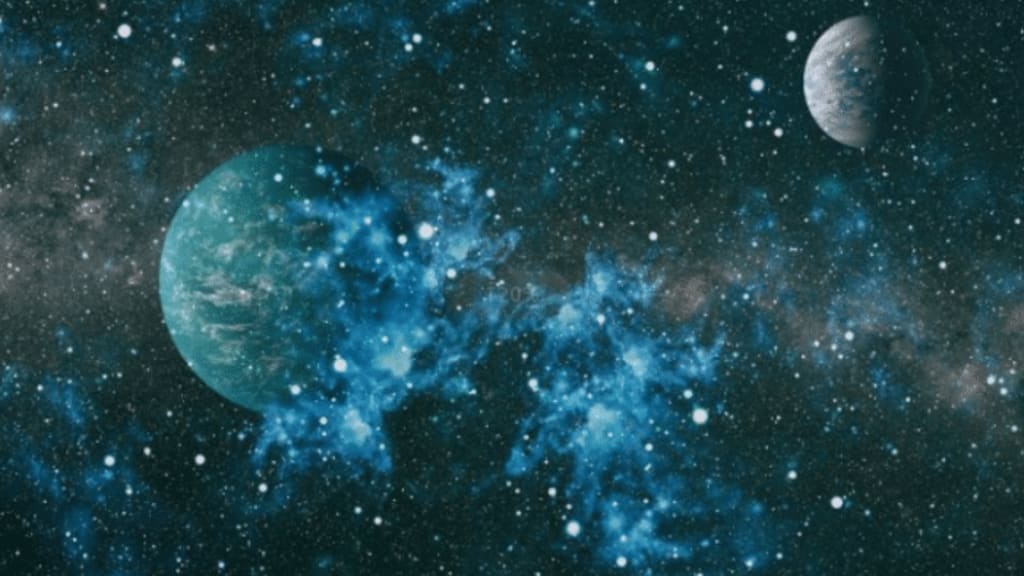
The universe may be teaching itself how to evolve into a better, more stable universe. It's a distant idea from a group of scientists who say that just as Darwin changed our view of the natural world, they are reimagining the universe.
This controversial new idea attempts to use a mathematical framework to describe various theories in physics, such as quantum field theory and quantum gravity. The result is a system that resembles a machine learning program.
Scientists have discovered countless laws of physics and quantities with fixed values that define the universe. From the mass of an electron to gravity, there are many specific constants in the universe that seem arbitrary to some because they have precise and seemingly patternless values.
"One of the goals of fundamental physics today is to understand not only the laws of physics, but also why they are exactly what they are and why they take their form," said physicist William Cunningham, a quantum computing startup Head of Software at Agnostiq. There is no obvious reason for one set of laws to take precedence over another.
self-taught system
To answer this question, the team wondered if the way we see the universe today is just one way of the universe? Maybe the law we see today is just one of many laws, maybe the universe is evolving.
In order to have a universe that can evolve, the researchers came up with an idea called a self-taught universe, which is a self-taught universe. In this case, the process of learning would be similar to how machine learning algorithms work, where feedback from one stage affects the next, with the goal of reaching a more stable energy state.
Following this idea, the group developed a possible framework that could utilize matrix mathematics (a mathematical method of arranging in rows and columns), neural networks and other machine learning principles to learn about the universe. In short, they looked at whether the universe could serve as a learning computer.
"We're trying to change the conversation in the same way the biologist Darwin changed the conversation to deepen our understanding of the subject," said physicist Lee Smalling of the Perimeter Institute for Theoretical Physics in Waterloo, Canada.
Similar to how moths evolved to have better camouflage, the self-taught universe may be evolving to a higher state -- in this case, that could mean one in a more stable energy state. According to a mathematical framework developed by the researchers, the system can only move forward, creating a better or more stable world with each iteration than before. The physical constants we measure today are only valid now, and may have been different values in the past.
The team found that certain quantum gravity theories and quantum field theories (called gauge theories) -- a class of theories that can bridge the gap between Einstein's special theory of relativity and quantum mechanics, which describe subatomic particles -- can be mapped or translated into a matrix language. Mathematics, which creates models of machine learning systems. This connection suggests that in each iteration or loop of a machine learning system, the result could be the physical laws of the universe.
This learning framework, described in a paper published on the preprint database arXiv, represents the first step in the idea, the team said. But with more work, the team could create a complete model of the universe, which could open new doors for understanding our universe.
"One exciting prospect is that you can use one of these models and maybe extract something new," Cunningham said. This could be the discovery of the physics of a new type of black hole, or the description of a yet-to-be-explained type of black hole. New laws for physical systems such as dark energy.
However, not all researchers are excited about the new idea. Tim Modlin, a philosophy professor at NYU who was not involved in the new work, asserts that there is no evidence to support the concept, and that there are many objections to it, such as the fact that some of the laws of physics that have been measured are the same as they are today. shortly after the big bang. Furthermore, if the laws of the universe are ever evolving, Magdalen argues that there must be larger, immutable laws to govern this change, negating the notion of self-taught.
"When we look at fundamental laws, like the Schrödinger look equation or general relativity, they don't seem random at all, and they can be written down mathematically with very tight constraints, without much Adjustable parameters."
Philosopher Peter Evans of the University of Queensland in Australia, who was not involved in the new study, was initially unsuccessful with the new work. But Evans agreed to take the time to take a somewhat unorthodox approach to radical questions like "Why is the universe the way it is?" He once told Live Science that this approach, even if not fruitful in itself, could lead to unexpected ideas that could open new doors for understanding the universe.
The researchers behind the new study acknowledge that their work is preliminary and not intended to be a final theory, but a way to start thinking about things in new ways. Ultimately, although this paper does not draw any conclusions about which model can be used to describe our universe, it does open up possibilities for cosmic learning.
"I think at the end of the day, we still have a lot of open questions, and of course we can't prove anything," Cunningham told Fun Science. "But what we're really trying to do is have a discussion."
About the Creator
gaut chen
share some science stories






Comments
There are no comments for this story
Be the first to respond and start the conversation.